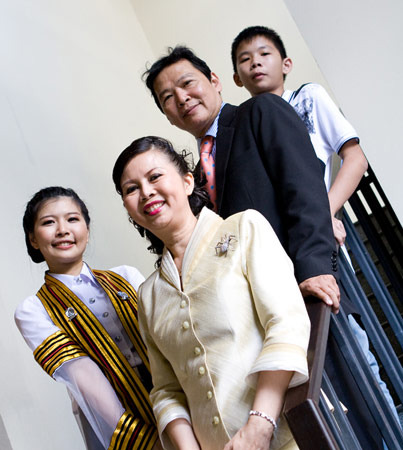Life Stages: Family and Parenting
Family Structure
The nuclear family is the core of the domestic unit. The extended family is more common in rural Thailand and may be headed by a patriarch, the oldest male in the family. Most couples have one or two children, though family size is sometimes larger in rural households.
The extended family system encourages consideration, tolerance, and mutual respect. Although most people live as nuclear families, most Thais still share these traditional values. Children are brought up to respect their parents and elders, and Thais generally avoid conflicts between generations.
In Thai households, men are typically the main source of income and are responsible for making all major spending decisions. Women usually manage the household budget and are responsible for the home even if they have outside work.
On an average day, the father and the mother will both go out to work. Young children and adolescents usually go to school. If they are young, a grandparent may pick them up from school in the afternoon. In the evening, families normally share a meal. Family leisure activities include visiting friends and relatives or attending other activities. Urban families often watch television or shop together. Those who can afford it take family vacations to the beach or other tourist resorts.
Copyright © 1993—2025 World Trade Press. All rights reserved.

 Thailand
Thailand 